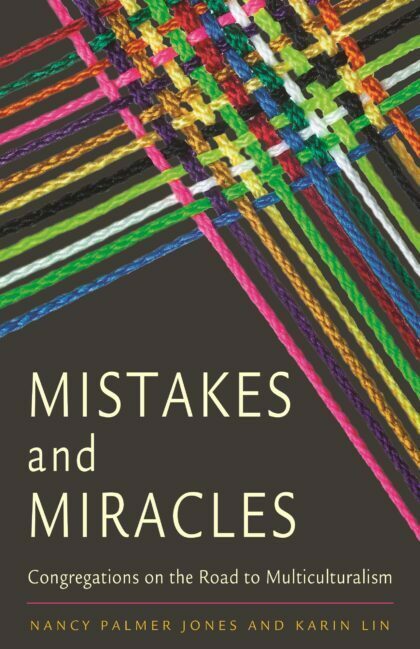UUCT members, friends, frequent visitors, and others interested, plan now to participate in a congregation-wide reading and discussion of the book: Mistakes and Miracles: Congregations on the Road to Multiculturalism. Small discussion groups will begin in late February or March and meet for four 90-minute sessions.
The book, which is also the Unitarian Universalist Association 2022-2023 common read, should be available again from the UUA Bookstore in January (uuabookstore.org). UUCT has about 15 copies available for borrowing. If you’d like to borrow a book now to start reading, speak with Rev. Holly Brown or Trudy Deyle on a Sunday or email 8thprinciple@uutallahassee.org. The book will also soon be available in audio format.
Reading and discussing the book together is one of the initial steps we can take toward living into the 8th Principle as a congregation. Here’s a little about the book from the bookstore listing:
“What calls Unitarian Universalists to create multicultural, antiracist Beloved Community? What do congregations need when they embark on this journey? What common threads run through their stories? Nancy Palmer Jones and Karin Lin—a white minister and a lay person of color—share how five diverse congregations encounter frustrations and disappointments, as well as hope and wonder, once they commit to the journey. Mistakes abound. Miracles of transformation and joy emerge, too. The book guides readers to apply these stories to their own communities, develop next steps, and renew their commitment to this hard but meaningful work.”
And Janice Marie Johnson, Co-Director, UUA Ministries and Faith Development, writes:
“[The authors] have chosen to center relationship as core to their work and ministry. They invite us to listen deeply and listen deeper still… This volume invites us to notice when and how we lift up the voices of diverse populations of people and our partnerships with them as we, with intention, break down our congregational walls to create robust, vibrant community centers. And there’s more. We need to make room among ourselves to step back, ensuring venues for our partners to speak to us, knowing that their voices must be heard by us.”

